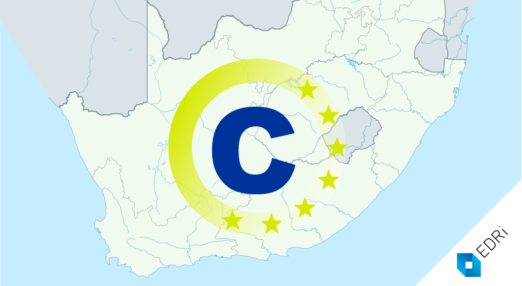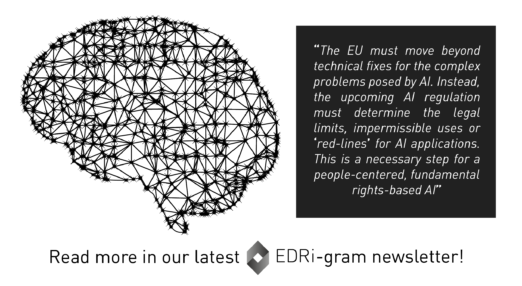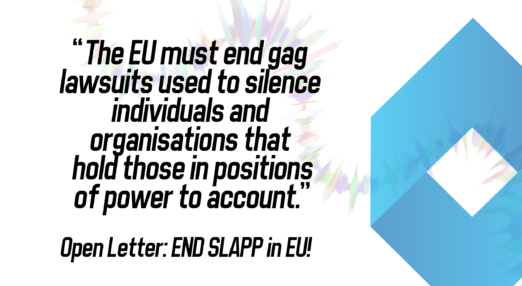Our work
EDRi is the biggest European network defending rights and freedoms online. We work to to challenge private and state actors who abuse their power to control or manipulate the public. We do so by advocating for robust and enforced laws, informing and mobilising people, promoting a healthy and accountable technology market, and building a movement of organisations and individuals committed to digital rights and freedoms in a connected world.
Filter resources
-

French Avia law declared unconstitutional: what does this teach us at EU level?
On 18 June, the French Constitutional Council, the constitutional authority in France, declared the main provisions of the “Avia law” unconstitutional. France’s legislation on hate speech was adopted in May despite being severely criticised from nearly all sides: the European Commission, the Czech Republic, digital rights organisations and LBGTQI+, feminist and antiracist organisations.
Read more
-

European Commission derails copyright reform in South Africa
Last year, the South African parliament adopted a progressive new copyright bill that would have drastically improved access to educational materials, introduced a fair use exception, implemented the Marrakesh treaty for the benefit of people who are blind or print disabled, and strengthened the negotiating positions of authors and performers in their negotiations with publishers.
Read more
-

The threat on OTF as a wake up call for European digital sovereignty
Around 2 billion people in 60 countries are able to use the internet securely and without risks of being surveilled or censored. And all of this, thanks to the work done by a non-profit called Open Tech Fund (OTF) for only 15 million dollars a year. However, all of this may be over soon.
Read more
-

EDRi-gram 18.11, 10 June 2020
"The EU must move beyond technical fixes for the complex problems posed by AI. Instead, the upcoming AI regulation must determine the legal limits, impermissible uses or "red-lines" for AI applications. This is a necessary step for a people-centered, fundamental rights-based AI"
Read more
-

Cryptocurrency scammers flood Facebook users with manipulative ads
Scammers using fake Forbes articles and anti-EU disinformation as bait continue to target Facebook users across Europe, the EDRi member Metamorphosis Foundation has warned.
Read more
-

UK: Stop social media monitoring by local authorities
Would you like your local government to judge you by your Facebook activity? In a recent study, we investigated how local authorities (Councils) in Great Britain are looking at social media accounts as part of their investigation tactics on issues such as benefits, debt recovery, fraud, environmental investigations, and children’s social care.
Read more
-

SHARE’s campaign bears fruit: Google appoints Serbian representatives
Serbian citizens can now bring their objections and requests regarding Google’s use of their private data to the tech giant’s new representative in the country.
Read more
-

COVID-Tech: the sinister consequences of immunity passports
In EDRi’s series on COVID-19, COVIDTech, we explore the critical principles for protecting fundamental rights while curtailing the spread of the virus, as outlined in the EDRi network’s statement on the pandemic.
Read more
-

Open Letter: ending gag lawsuits in Europe – protecting democracy and fundamental rights
The European Digital Rights network joined 118 civil society organisations from across the globe in signing an open letter (the latest act of a longstanding movement) addressing the need to end gag lawsuits that threaten the public interest by allowing powerful actors to silence those that would speak against them.
Read more
-

EDRi submits response to the European Commission AI consultation – will you?
Today, 4th June 2020, European Digital Rights (EDRi) submitted its response to the European Commission’s public consultation on artificial intelligence (AI). In addition, EDRi released its recommendations for a fundamental rights-based Artificial Intelligence Regulation.
Read more
-

Can the EU make AI “trustworthy”? No – but they can make it just
European Digital Rights (EDRi) submitted its answer to the European Commission’s consultation on the AI White Paper.
Read more
-

EDRi-gram 18.10, 27 May 2020
"A collective vision of privacy means contesting ramped-up police monitoring and the use of marginalised groups as guinea pigs for new digital technologies, as well as ensuring new technologies have adequate privacy protections."
Read more
